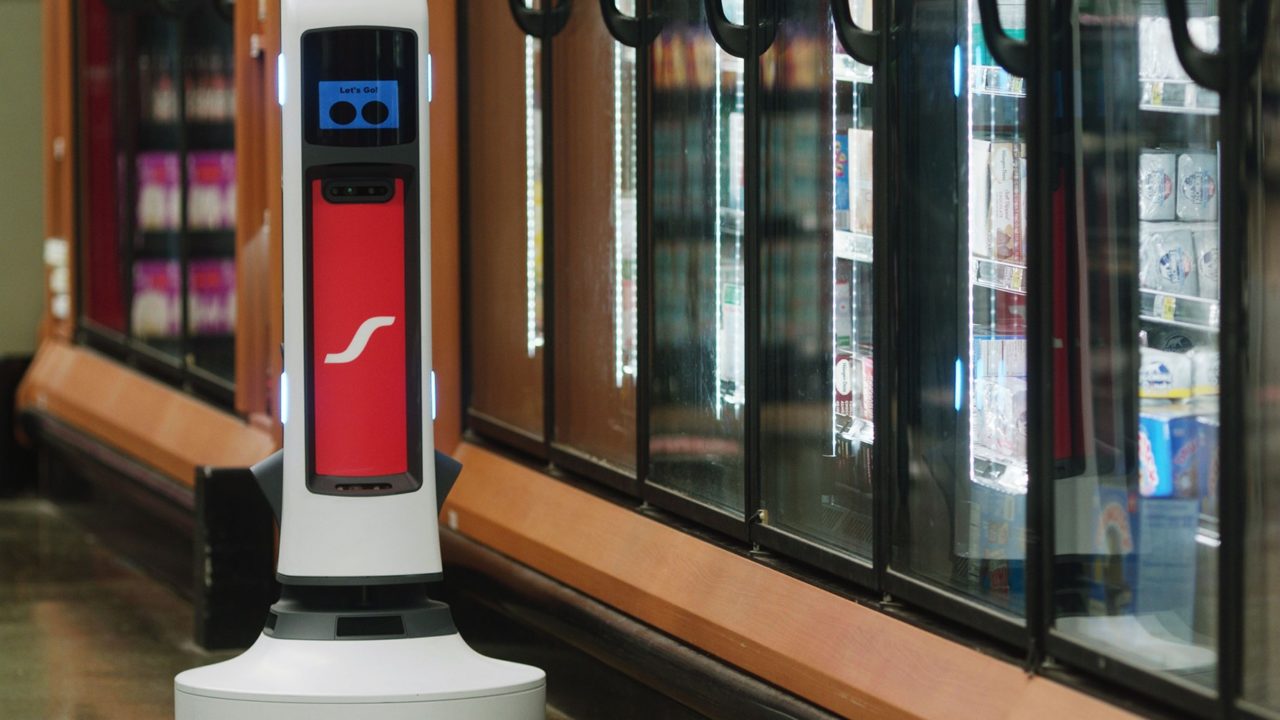Penn State University pals Brad Bogolea and Mirza Shah were living in Silicon Valley when they pitched Jeff Gee on their robotics concepts. Fortunately for them, the star designer was working at the soon-to-shutter Willow Garage robotics lab.
So the three of them — Shah was also a software engineer at Willow — joined together and in 2014 founded Simbe Robotics.
The startup’s NVIDIA Jetson-powered bot, dubbed Tally, has since rolled into more than a dozen of the world’s largest retailers. The multitasking robot can navigate stores, scan barcodes and track as many as 30,000 items an hour.
Running on Jetson enables Tally to be more efficient — it can process data from several cameras and perform onboard deep computer vision algorithms. This powerful edge AI capability enhances Tally’s data capture and processing, providing Simbe’s customers with inventory and shelf information more quickly and seamlessly while minimizing costs.
Tally makes rounds to scan store inventory up to three times a day, increasing product availability and boosting sales for retailers through reduced out of stocks, according to the company.
“We’re providing critical information on what products are not on the shelf, which products might be misplaced or mispriced and up-to-date location and availability,” said Bogolea, Simbe’s CEO.
Forecasting Magic
Using Tally, retail stores are able to better understand what’s happening on store shelves, helping them recognize missed sale opportunities and the benefits of improved inventory management, said Bogolea.
Tally’s inventory data enables its retail partners to offer better visibility to store employees and customers about what’s on store shelves — even before they enter a store.
At Schnuck Markets, for example, where Tally is deployed in 62 stores across the midwest, the retailer integrates Tally’s product location and availability into the store’s loyalty app. This allows customers and Instacart shoppers to determine a store’s availability of products and find their precise locations while shopping.
This data has been helpful with addressing the surge in online shopping under COVID-19, enabling faster order picking through services like Instacart, helping to more quickly fulfill orders.
“Those that leverage technology and data in retail are really going to separate themselves from the rest of the pack,” said Bogolea.
There’s an added benefit for store employees, too: workers who were previously busy taking inventory can now focus on other tasks like improving customer service.
In addition to Schnucks, the startup has deployments with Carrefour, Decathlon Sporting Goods, Groupe Casino and Giant Eagle.
Cloud-to-Edge AI
AI is the key technology enabling the Tally robots to navigate autonomously in a dynamic environment, analyze the vast amount of information collected by its sensors and report a wide range of metrics such as inventory levels, pricing errors and misplaced stock.
Simbe is using NVIDIA GPUs from the cloud to the edge, helping to train and inference a variety of AI models that can detect the different products on shelves, read barcodes and price labels and detect obstacles.
Analyzing the vast amount of 2D and 3D sensor data collected from the robot, NVIDIA Jetson has enabled extreme optimization of the Tally data capture system and has also helped with localization, according to the company.
Running Jetson on Tally, Simbe is able to process data locally in real time from lidar as well as 2D and 3D cameras to aid in both product identification and navigation. And Jetson has reduced its reliance on processing in the cloud.
“We’re capturing at a far greater frequency and fidelity than has really ever been seen before,” said Bogolea.
“One of the benefits of leveraging NVIDIA Jetson is it gives us a lot of flexibility to start moving more to the edge, reducing our cloud costs.”
Learn more about NVIDIA Jetson, which is used by enterprise customers, developers and DIY enthusiasts for creating AI applications, as well as students and educators for learning and teaching AI.
